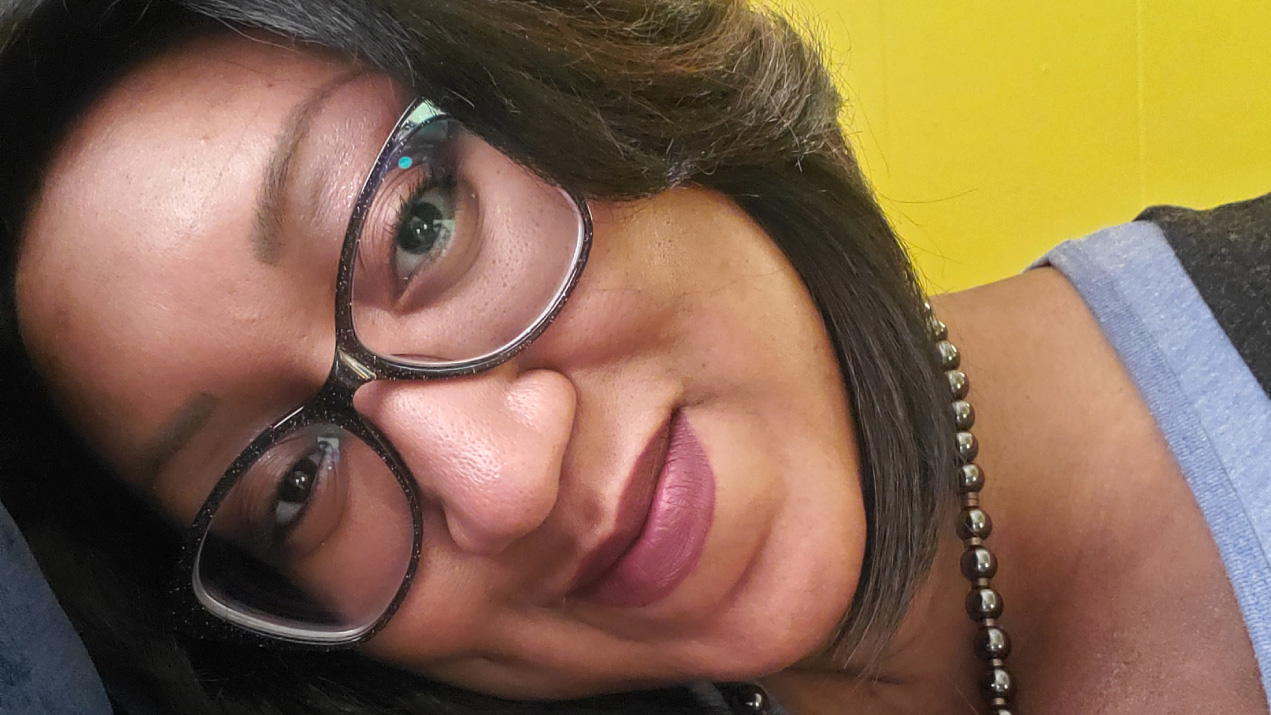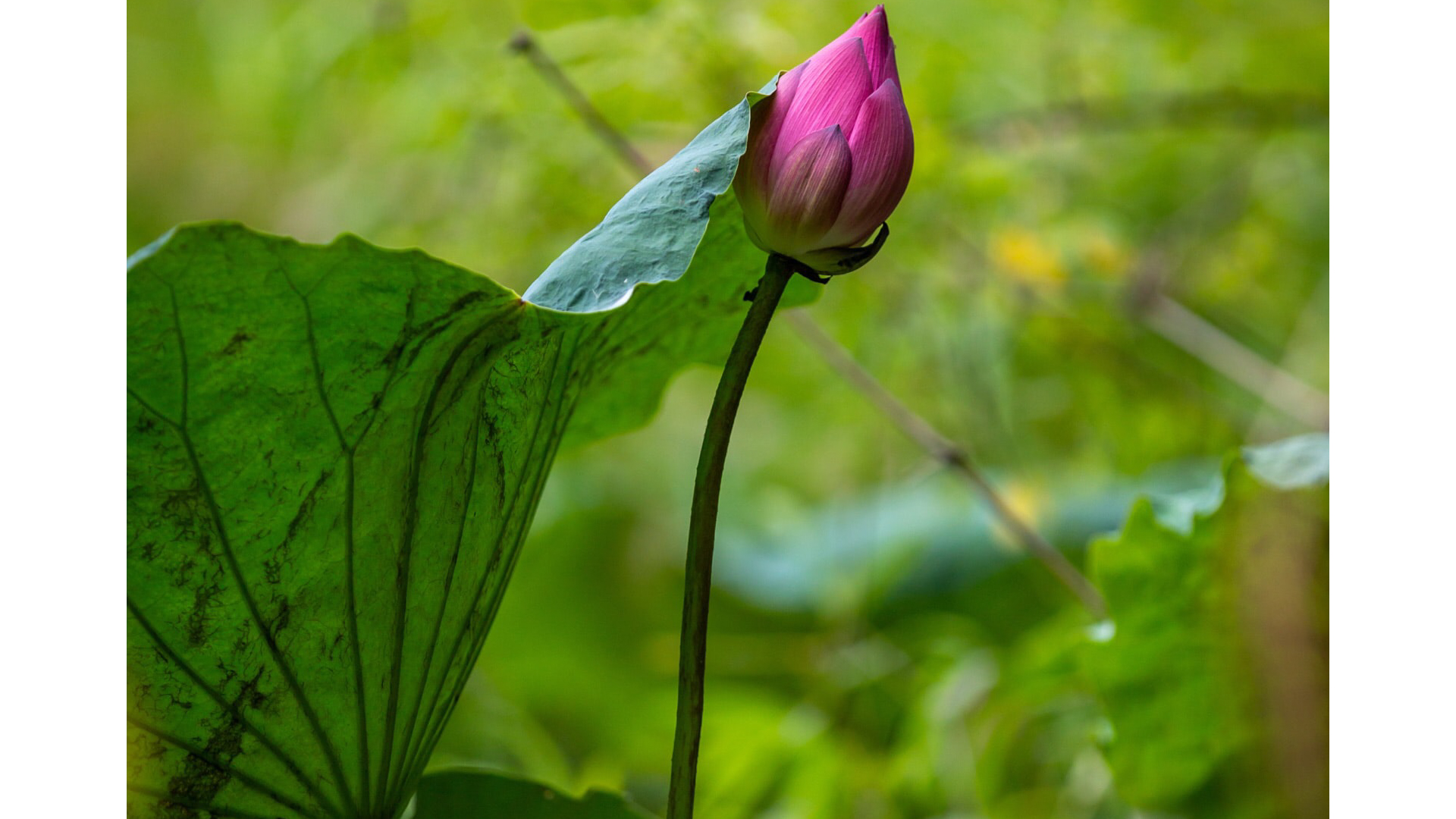I start out each calendar year determined that this will be the year I finally run a stopwatch to see the number of hours I wait on hold with my insurance company. Or my doctor’s office system. Or with the pre-authorization company. Really, there is a bevy of time-sucking parasites from which to choose.
Continue readingMeet Deltra Kroemer
Meet Deltra Kroemer.
Home: Connecticut
Horoscope: Aquarius
Favorite book: Portrait of Jennie by Robert Nathan and A Christmas Carol by Charles Dickens
Hero: My daughters
Superpower: Being an empath
Hardest challenge: organizing
Guilty pleasure: Reality TV shows
Favorite Lacuna Loft Program: Creative Art Workshops
Proudest moment: My waterbirth
The best piece of advice I’ve received: “Just keep swimming!” 🙂
How I stay mentally healthy: Dance therapy, community, and maybe a bit of denial.
Personal Mantra: Dig and dug in return.” – Langston Hughes
My favorite part of being part of Lacuna Loft: Connecting with people who get my cancer experience and getting in touch with my creative side.
Grief to Gratitude
By Tara Picklo, Lov Yoga
For just a moment pause and notice how you feel when you think of the word grief…
Perhaps you notice your body tense up, shoulders round, breath stuck in your chest, tears well up or maybe you even sense anger, denial, or overwhelm. It may feel like waves are crashing over you in a turbulent sea during a storm and you can’t catch your breath or seem to stay afloat. This is all normal and hopefully, by reading this blog you may begin to realize that there is hope.
Grief is the “normal” human reaction to the loss of anything we are attached to in life. Attachment is evident when there is a deep emotional bond that results in a yearning or longing for what has been lost. Because we can feel attachment toward people, pets, things, jobs, lifestyles, identities, places we live, and more, we can feel grief through any major changes or transitions in life. Some of this grief has been experienced collectively as well through the pandemic shift of “normal” human culture. In the AYA community, there is also the unifying undercurrent of cancer. Additionally, each of us have an individual grief journey to explore. So if you are grieving a person who passed away or perhaps your own past identity as you try to understand a sense of self that may feel foreign, it’s all normal.
When my husband of 13 years passed away in 2016 from cancer, a big part of me did too. It felt like my outward appearance was just a shell and I was nearly empty inside. I now see this person as my past identity because I am not the same after such a loss and that’s okay. Through processing grief, I have begun to see the true nature that was inside of me all along. I just had to rediscover her and let her sing a new song.
My teacher, Antonio Sausys, normalizes grief by explaining different symptoms that can be experienced. Grievers tend to feel pain physically (tightness in chest, shallow breath, fatigue, inconsistent digestion); mentally (confusion, negative thinking, denial, lack of motivation); emotionally (shock, sadness, anger, resentment, fear, mood swings, depression, relief); behaviorally (crying, avoidance, clinging to past mementos); socially (withdraw, awkward labels, shifting of friend circles); and spiritually (mystery, confusion, clinging on, questions about God and death) just to name a few. It is also common for people to feel combinations of these symptoms and extremes within each realm. Transformation from feeling overwhelming effects of these symptoms is the ultimate goal because we can’t change the loss. We can however transform ourselves by learning how to feel balance while focusing on what we can control in life.
These symptoms of grief we feel are often most intense when we are resisting them, kind of like trying to swim upstream rather than flow down freely with the river current. It’s normal to feel for a bit and then start to think, “I don’t have time for this,” or “That’s enough feeling for a while,” as the busyness of life takes over again. If we continue to push it aside, the body keeps the score, the symptoms get stuck inside, and then come back to say hi when least expected in unexpected ways.
Because of the extreme ways that grief manifests it’s also normal to feel triggered randomly or simply overtook with emotion. These S.T.U.G.s (Sudden Temporary Upsurges of Grief – as labeled by my teacher) can really catch us off guard by random triggers such as an innocent comment from a friend or in a tv show, an anniversary, favorite food, familiar smells, etc. We begin to feel like we are on a rollercoaster that seems to pick up speed just when we think it’s coming to a halt, taking deep dips and then shooting back up the tracks through twists and turns. The crazy, confounding part of these STUGs are they are also NORMAL! However, feel rest assured that through time there will be fewer STUGs and they will be spaced further apart. Time does not heal by itself though, it’s what is done within that time that will help process the pain caused by loss.
So what to do? The only way out is through. What if you let your armor slightly crack or take your mask off? What would it feel like to allow some vulnerability? If this sounds scary, that’s okay. It’s also scary to let grief lurk beneath the surface, stewing, brewing, and eventually turning into something that takes over when we least expect. Vulnerability and feeling helps to process the pain and then move into a phase of reconstructing life in a meaningful way. Vulnerability is the rain that must fall in order to see the rainbow after the storm.
Through years of conscious grief processing and commitment to learning about yoga therapy, I have realized that emotions are cycles and we have to feel to heal. I resisted this theory for a while and even ended up with a broken ankle in Bali six months after my husband passed away because I couldn’t slow down to feel my emotions. Now my tears are a beautiful, devotional, spiritual song and a regular release of stress. We do actually release cortisol through our eyeballs with tears, so cry on friends, let them flow!
The beautiful part about grief is that it becomes a blessing, friend, and teacher when are willing to dive into awareness and begin to process the unavoidable pain. My teacher also says that we don’t get over our grief, we transform our relationship to it and through this grief comes self-knowledge. With awareness comes the ability to do something about it. Suffering then becomes optional because it’s possible to learn ways to establish a sense of balance and control in life once again. There are many ways to do this and I have found that yoga therapy was what worked for me. I needed to talk, breathe, meditate, move mindfully, reflect, journal, cry and learn how to reconnect with my body, mind, and soul. By doing so I learned so much and my grief turned into gratitude for all that it taught me. Yoga also teaches that everything changes and everything will eventually end so we learn to let go of attachment and therefore suffering. I realize now that I can never go back to how life was and I have learned to embrace that with gratitude for what is to come. Sometimes our greatest suffering can be the silver lining in the cloud that was hovering above.
It is said that Grievers need to be heard, not fixed and I believe this is true. Much of my work with clients involves talking through grief. There is a point, however, when the stories we tell ourselves can become cyclical and the mind space feels like it’s tangled in knots. The body can feel heavy from grief and becomes important to move through the emotions that are stuck inside. That’s where the gateway to yoga leads into a garden of growth and possibility. Yoga means union of body, breath, mind and spirit. Through practices of breathwork, meditation, asana/movement, and self-reflection/contemplation, yoga helps us connect to our true nature and rediscover what has been lost inside. Yoga Therapy is the path out of the darkness into the light. We enjoy happiness even though it’s fleeting, we love knowing it one day will end. LOVE is energy and energy cannot be created or destroyed, only transformed. With Love and Gratitude we can transform our grief.
—
Hi! I’m Tara with Lov Yoga. I am merely a humble vessel who has journeyed along a rocky road of grief and feel called to help others do the same. It is an honor to create and share a safe space with others where they can shed layers, become vulnerable and eventually open to the possibility that it is all within and grief is their greatest teacher in life. I am also a self-declared writer that has evolved by using writing as therapy to grow through what I’ve gone through. As a yoga teacher, I believe we find magic on our mats by learning to be mindful and breathe into shapes. This magic is the feeling of balance between body, breath, mind, and soul. I specialize in teaching yoga for cancer and grief support to individuals through private sessions and groups by way of yoga program development. I am grateful to have worked with the following organizations: Dear Jack Foundation, First Descents, Soul Ryeders, The Cancer Support Community, and Lacuna Loft. For more about my story and personal connection to cancer, please visit www.lov.yoga/about.
Join The Next Creative Writing Workshop
The next Writing Workshop is now forming! Sign up on the form below!
The next session will start on Thursday, April 8th, meeting each Thursday at 4:30 pm PT / 6:30 pm CT / 7:30 pm ET for 2 hours via video chat.
Our online, Unspoken Ink: Creative Writing Workshop is designed to take you on a journey through your cancer diagnosis and into your survivorship with a small group of your young adult cancer survivor peers. Each 8-week Writing Workshop consists of a weekly writing night attended via online video chat. We will get to know one another in an intimate, 18 person setting and address issues that transport us from initial diagnosis into the new normal and survivorship. To learn more about the method we use, go here!
Where: Online video chat. We’ll send you more information about joining after you register. Please have a microphone headset and a webcam.
Who: Young adult cancer survivors and caregivers.
When: The writing group meets for 2 hours each week, for 8 weeks. A commitment to attend each week is important to group continuity and in creating a safe space. Please be on time
Sign Up For Lost And Found
Young adult cancer survivors often worry about returning to the dating world, to their established intimate relationships, and to themselves.
Jean Rowe, Certified Journal Therapist, returns to facilitate this meaningful and powerful program. This workshop has helped past participants dip their toes back into the water of intimacy after diagnosis and treatment. Lacuna Loft and Jean are excited to offer this journal workshop online to young adult cancer survivors (women only) of any diagnosis. Using journal techniques and cultivating an action plan for self-care, in 8 weeks you will have the opportunity to emerge from the water renewed, informed, and ready to reconnect.
Join other young cancer survivors (women only) who understand what you’ve gone through while learning how to reconnect, welcoming a compassionate understanding of your body now, and creating ways to open your heart to intimate opportunities after cancer. Sign up below!
Where: Online video chat. We’ll send you more information about joining after you register. Please have a microphone headset and a webcam.
Who: Young adult cancer survivors (women only). *If you’ve taken this workshop before, we will be prioritizing survivors who have not yet had the opportunity.*
When: The writing group meets on Sundays at 1 pm PT / 3 pm CT / 4 pm ET for 2 hours each week, for 8 weeks starting on Sunday, April 18th and ending on May 23rd. A commitment to attend each week is important to group continuity and in creating a safe space. Please be on time
Comment On Research Results!
The Behavioural Sciences Unit, a research group in Sydney, Australia is looking for cancer survivor consumer representatives aged 15-39 to provide feedback on some brand new study results from the AYA Global Accord international research study. Some of you may have provided input on this study in 2018 when it was first applying for funding. This global study is being led by Dr. Ursula Sansom-Daly, a psychologist and researcher whose work focuses on AYA cancer, and she is working with a team of international experts from Australia, New Zealand, USA, Canada, and the UK.
The study involved AYA healthcare professionals completing an online survey. This survey aimed to find out what an international group of healthcare professionals thought ideal end-of-life communication with adolescents and young adults with cancer should look like, and what type of training they wanted to improve their skills in this area.
The first thing we’d be seeking your help with would be commenting on the results from this survey based on your experience, via an online survey format.
Later on, there will also be an opportunity to join a teleconference with other young cancer survivors and the research team to discuss your perspectives on the research findings some more. Consumers will also have the opportunity to contribute to a publication (an academic journal article) about consumers’ views.
If you’re interested, fill out the form below and Lacuna Loft will forward your information along to the research group!
Beginning Again
March is a time which includes celebrating women, the vernal equinox, springing an hour ahead and wearing green on the 17th. Some may moan at the time change, and I encourage us to welcome the longer light. Depending on where you live, you may already be seeing evidence of spring with new blossoms surfacing. Daffodils were the first to wave at me followed now by Redbuds. New life. Rebirth. Beginning. Again.
These latter signs point to opportunity. To fling open the windows and let in fresh air – literally and within your being. To breathe deeply as the earth shows off in its seasonal glory. To rise from hibernation and start down the mountain as the splendid Mary Oliver’s bear is described in Spring (“this dazzling darkness”). To take chances, risk as some of the characters do in the movie Begin Again.
How might it feel to rise, to stretch, to move down the mountain, to sniff the air, to listen to the sounds around you, to taste, to touch, to feel – as if a brand new experience?
Absorb this idea and write for five minutes. Stay curious.
Let me know how it goes. I’d love to hear from you!
Some old-fashioned things like fresh air and sunshine are hard to beat.
–Laura Ingalls Wilder










